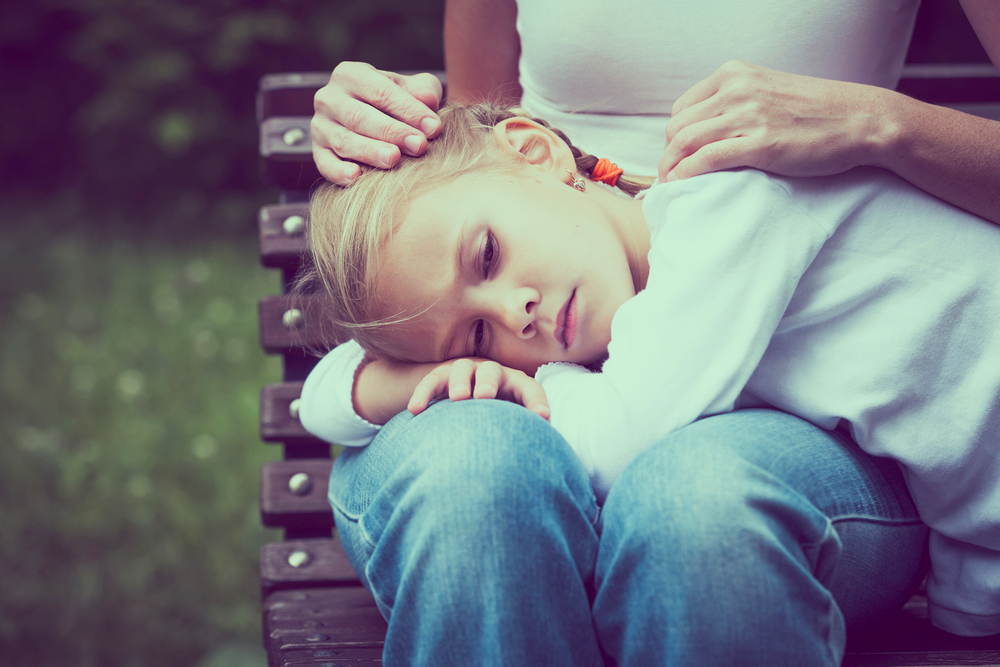Our Kids Are Falling Into Wells We Can See
 In 1987 an 18 month old girl fell down a narrow 8 inch wide well while playing in her aunt’s backyard. I was 14 at the time, and I clearly remember the entire country holding its breath. Glued to televisions, our nation seemed to hit the pause button on life to cheer on the heroic rescue effort, listen to little Jessica McClure’s sweet singing, panic when the singing stopped, and pray, hope and worry during all our waking hours. After sleeping, we tuned in to check if Jessica had been rescued overnight, or if heaven forbid, the worst had happened. We all wished we could do more, many did, and the herculean effort to save one small life triumphed against 22 vertical feet and 58 grueling hours of challenges. This moment represented the best of us. People die every day. Children die every day, but this was a child we could save if we harnessed the collective determination and ingenuity of our toughest and brightest. So, we did.
In 1987 an 18 month old girl fell down a narrow 8 inch wide well while playing in her aunt’s backyard. I was 14 at the time, and I clearly remember the entire country holding its breath. Glued to televisions, our nation seemed to hit the pause button on life to cheer on the heroic rescue effort, listen to little Jessica McClure’s sweet singing, panic when the singing stopped, and pray, hope and worry during all our waking hours. After sleeping, we tuned in to check if Jessica had been rescued overnight, or if heaven forbid, the worst had happened. We all wished we could do more, many did, and the herculean effort to save one small life triumphed against 22 vertical feet and 58 grueling hours of challenges. This moment represented the best of us. People die every day. Children die every day, but this was a child we could save if we harnessed the collective determination and ingenuity of our toughest and brightest. So, we did.
Fast forward. Thirty-five years have passed and deep, dangerous wells abound. Despite all our investment in safety locks, better car seats, organic baby food and bike helmets, the wells have multiplied and our children are falling in. Every week, I hear of high school and college students ending their young lives, most recently at my alma mater, Manhattan College. No campus is immune. Dartmouth, Saint Louis, UNC, West Virginia, Stanford, Harvard, JMU, Middlebury … the list goes on. Some of these schools have lost multiple students to suicide this year. The lack of campus mental health support is a well known problem, with long waiting lists and ineffective care. After a suicide though, everyone leaps to action, as they should. Postvention is critical to support those struggling with mental illness and to support those grieving so that we may treat suicide contagion before more lives are lost. Mental health resources are ramped up, and this is a good thing. But, this is reactionary and often temporary. I wonder, not only when are we going to get serious about rescuing our next generation from the wells, but when are we going to start getting serious about covering up the well in the first place?
As parents, we can acknowledge our responsibility without taking on crippling blame. In October of 1987, if you were a parent and you had a hole in your yard, you can bet you covered it up. Exact numbers of suicide this year are hard to come by, but we know it is more than one. If we rallied and believed we could save one little girl from what seemed like an impossible situation, should not we try harder to save the thousands of children who will choose to end their life prematurely? In 2019, and this is PRE pandemic, 18.8% of high school students seriously considered attempting suicide and 8.9% actually attempted suicide. Over 6,000 people between the ages of 10 – 24 completed their attempt. 93% of Americans think suicide is preventable. Great. Let’s do it. Let us rally to save lives. History tells us we are capable of coming together to achieve incredible rescues.
For our kids who have already fallen to deep places because of mental illness, we need the 911 response and the help of experts. What about the children who are still on solid ground? Where do we find lids for all these holes into which they are at risk of falling? The good news is we have many of the coverings in our parenting toolbox, we just have to be strong enough to use them. I realize no one thinks they put too much pressure on their children. I hear it from others, I say it myself, and maybe you as an individual truly put no pressure on your child. Please allow me for a moment to paint with a wide brush, as there are too many children in need of saving to get caught up in defensive posturing. Collectively, we adults need to take responsibility for creating a culture that at the same time expects far too much from our children and sends them the message they are ill-equipped to handle the ups and downs of every life. I’m raising my hand. I am part of the problem. I get caught up in the worry of my children’s ability to be successful and forget to focus on the potentially beautiful moment we are in. This robs their childhood of joy. I feel the reflection of their successes and failures on me as their mother. This is unfair. They are not responsible for my happiness, and I’m trying to break that mirror. I’ve hovered and snowplowed, because I want to fix their problems and clear obstacles. This is crippling their ability to learn self-reliance.
Through self reflection, I am trying harder to parent my truth, which is simply this. I want to raise happy, confident, kind people, and I want them to enjoy their childhood — the only one they get. Through coaching, I am trying to help other parents and young adults destress and find their personal fulfillment and happiness in today, for today is all we have. Together with my daughter, I am working on a project to bring some levity and lightness to the high school student experience. We can support robust mental health in ways that are proactive rather than reactive.
If you are a parent, what is your truth? If your dream is for your children to live good lives, to be joyful, grateful and compassionate, cultivate these priorities in your home. Teach them how to not put so much pressure on themselves. Show by example what really matters in life. Love them for who they are, not who you want them to be, and they will learn to love themselves. Though many of our children will not be clinically diagnosed with a mental illness, they still suffer from a high stress childhood and from pressure to be perfect. Why? Life is short. Why do we strip them of joy today in the interest of what may or may not be theirs tomorrow?
Are there times when nothing we do or say can impact the mental health of a loved one? There are. DNA is always at play. Is our culture at least partly to blame for the rise in unhappiness and despair? The overwhelming evidence suggests it is. We cannot allow the enormity of the problem to paralyze our ability to make change. We have to start somewhere, and home is as good a place as I can conceive. At a minimum, we should close up the wells that are easy to see and start talking about how to cover the ones we can’t reach alone. At the very least, we should try. It is far better to prevent the fall than to orchestrate the rescue.




















